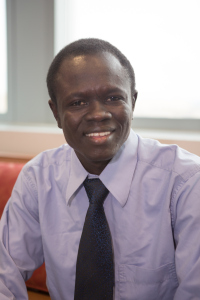 Today's guest post is written by Samir Hummad, Banaa Scholar, University of Rochester, Class of 2015
Today's guest post is written by Samir Hummad, Banaa Scholar, University of Rochester, Class of 2015
I could hardly believe it when I got my admission letter to come to the University of Rochester. I thought to myself, as I read my acceptance letter, “At long last God has listened to my prayer, I will go to America to study then I will come back to help the people at home.” At that time I was in Kadugli, the capital city of Nuba Mountains, and I was about to go to Kauda Valley to celebrate my admission with my family there. Unfortunately, just two weeks after I received my admission letter, unexpected armed conflict and violence erupted in the whole area.
Everything was ruined by the ongoing war including my long-waiting admission to U.S. college happiness. To be honest, within the following three weeks I spent in Nuba Mountains during this war, which broke out last June, I wasn’t even sure whether I would be able to make my way to Khartoum for the visa to the U.S. or not.
Thankfully, I arrived in the U.S. greeted by the warmness and friendliness of the Banaa staff, who welcomed me and picked me up from the Rochester airport. My coming to America finally put everything into perspective. I got the opportunity to meet the people whom I had only communicated through emails. When I shook their hand, I felt like a young man meeting his favorite movie star in person for the first time.
Studying at the University of Rochester is such a blessing. I have learned a lot so far, from some knowledgeable, hard-working and caring instructors. They are so earnest in their teaching that I want to give back to them my best work and my eagerness to learn.
My classes are even more surprising. Almost every class has a lively discussion, especially economics and writing classes. The cultural difference that highlights modesty rather than active attitude in Sudan sometimes drives me to be shy, but I am really pleased at the fact that I am not only learning from my professors but also from my classmates. The best part is, I never feel like a fish out of water since I came to the University of Rochester because of its wonderful people.

Once I settled into school last September, Nuba people and other Sudanese marginalized groups living in the U.S. invited me to talk in a protesting rally in front of the UN Head Quarters in Manhattan about the “Genocide in Nuba Mountains and Darfur.” I told my story as a witness of this Genocide, and my words were received positively. From that rally, I participated in several meetings both virtually and physically to talk about the same issue as a fresh and newcomer to U.S., and I was also invited and interviewed by some U.S. NGOs working in humanitarian and advocacy issues.
I led an initiative, which resulted in forming “Nuba Youth in America,” a small group that now consists of 103 members. Most of them are college students from U.S. and Canada. They are enthusiastic, meeting weekly in a conference call. The schools supplies going to Nuba Mountains is their contribution. We are going to organize “Nuba cultural day” next summer in Memphis, Tennessee.
I am truly grateful for all the people I have met and all the experiences I have had in America so far.
1/27/12

